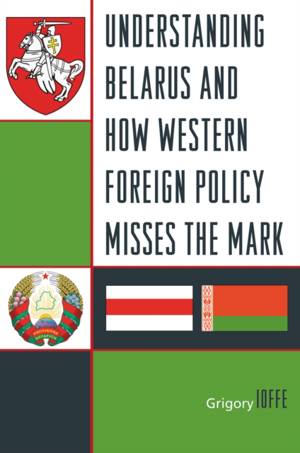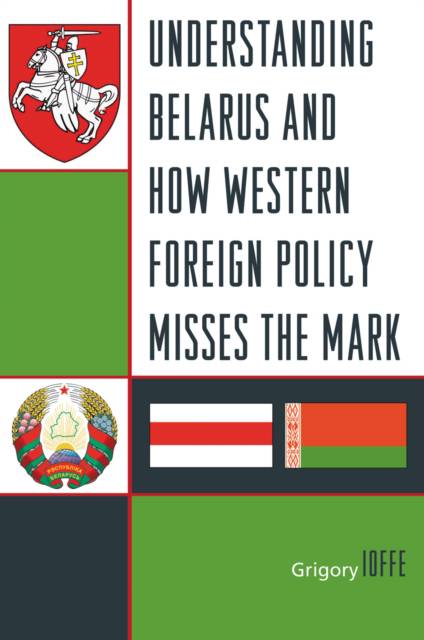
Je cadeautjes zeker op tijd in huis hebben voor de feestdagen? Kom langs in onze winkels en vind het perfecte geschenk!
- Afhalen na 1 uur in een winkel met voorraad
- Gratis thuislevering in België vanaf € 30
- Ruim aanbod met 7 miljoen producten
Je cadeautjes zeker op tijd in huis hebben voor de feestdagen? Kom langs in onze winkels en vind het perfecte geschenk!
- Afhalen na 1 uur in een winkel met voorraad
- Gratis thuislevering in België vanaf € 30
- Ruim aanbod met 7 miljoen producten
Zoeken
Understanding Belarus and How Western Foreign Policy Misses the Mark
Grigory V Ioffe
Hardcover | Engels
€ 232,45
+ 464 punten
Uitvoering
Omschrijving
In this fascinating study of unfinished nation-building in Belarus, Grigory Ioffe draws on his two dozen research trips to the country to trace Belarus's history, geography, political situation, society, and economy. The ambivalent relationship between Russia and Belarus results in an identity crisis that is not understood by the West, which leads to Western policies toward Belarus that are based on a fallacy of geopolitical thinking. This book will lead readers to a deeper understanding of Belarus, its relationship with Russia, and its still-forming national identity.
Specificaties
Betrokkenen
- Auteur(s):
- Uitgeverij:
Inhoud
- Aantal bladzijden:
- 288
- Taal:
- Engels
Eigenschappen
- Productcode (EAN):
- 9780742555587
- Verschijningsdatum:
- 25/02/2008
- Uitvoering:
- Hardcover
- Formaat:
- Genaaid
- Afmetingen:
- 154 mm x 233 mm
- Gewicht:
- 553 g

Alleen bij Standaard Boekhandel
+ 464 punten op je klantenkaart van Standaard Boekhandel
Beoordelingen
We publiceren alleen reviews die voldoen aan de voorwaarden voor reviews. Bekijk onze voorwaarden voor reviews.









